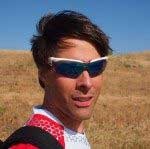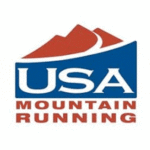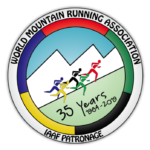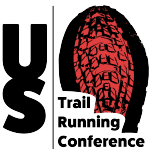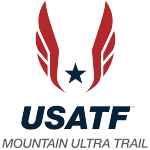
Redemption, Wrong Turns, Silver Linings and Cigarettes: How a Few of the Nation’s Top Mountain/Ultra/Trail Runners Found Their Way to the Trails.
Written by Shannon Payne. Shannon is a Colorado native trail runner currently residing in Auburn, California. She was a 2-time qualifier for the US Mountain Running Team, 2-time winner of the Mt. Washington Road Race, and a 7-time All-American at the University of Colorado at Colorado Springs.
Wrong Turns
While a lost bet may have led Kristina Mascarenas (see part 1) to do great things with trail running, in Joseph Gray’s case, it was getting lost in his first trail race that would set the stage for what would become arguably one of the most spectacular mountain running careers of any American trail runner to date.
A versatile runner from the beginning, Gray, a native of Washington, had a successful collegiate running campaign at Oklahoma State University. Strong in cross country and in the steeplechase, trail running would seem a natural next step, but post-collegiately Gray spent most of his time on the roads and track.
At the urging of his friend and mountain running veteran Simon Gutierrez, who was a multiple time member of the US Mountain Running Team, it wasn’t long after graduation that Joe left the oxygen-laden atmosphere of Oklahoma to try his hand, or legs more like, at the 2007 USATF Mountain Running Championships in Steamboat, Colorado.

Gray at his first World Mountain Running Championship in 2008 with Simon Gutierrez. Photo by Richard Bolt.
Elevation and lack of ideal training notwithstanding, Gray led for much of the championship race and seemed poised to win his first national title and make his first national team, until an occurrence that makes up the stuff of runners’ nightmares. “I took a wrong turn,” Gray recollected, “It was the first time that had ever happened to me in a race. I think from there I was just kind of mentally out of it.”
While he wasn’t quite able to rally in time to regain his lost position, Gray shook off the disappointment. “I knew I had to try again. I wanted to give it a go when I had trained more specifically. I knew that I could be good at it, I just wasn’t sure how good.”
His persistence paid dividends over the subsequent years as he won his first national title just two years later in 2009. Today, Gray has racked up 8 world championship wins, 18 national championship victories, and has represented the USA 31 times in international competitions. Most recently he won his second World Mountain Running Championships in Argentina this past Fall.
Olympic Trials to Trails
Similarly to Gray, Sage Canaday would find his way to the trails by means of a wrong turn, although his path there may have been slightly less direct.
“My soccer coach told me I was better off without the ball,” Sage Canaday recalled of his final soccer season at age 12, where he failed to score a single goal. Conveniently though, he already had another sport to turn to as he had begun running track that same year, finding moderate success first in the hurdles and eventually the distance events.
But he wouldn’t begin to find his niche until cross country season, where he formed a one-man team as his middle school had no actual team, and he travelled to races by himself. Even so, he wouldn’t find his way to the mountains and trails until long after a relatively successful high school running career, where he managed to hold his own in the competitive state of Oregon, eventually opting to run collegiately at Cornell.

Canaday with Kim Dobson after winning the 2012 Mt Washington Road Race & USATF Mountain Running Championship. Photo by Richard Bolt.
During his time competing in the Ivy League, he would become the youngest competitor at the 2008 US Olympic Marathon Trials at just 21 years old. His scrappy, competitive drive caught the attention of Kevin and Keith Hanson of the Brooks-sponsored Hanson’s Distance Project in Michigan, where Canaday would sign on to spend the subsequent 3 years chasing PR’s on the roads and, namely, in the marathon while enjoying the support that came from a structured training group, coaching, and sponsorship.
While he did earn yet another berth at the US Olympic Marathon Trials in 2012, his efforts didn’t culminate in a result that he was pleased with, and Canaday felt the regimented, structured training and lifestyle of his professional running career with the Hansons to be stifling. “I’d be working in the running shoe store between runs, and I used to look in magazines and read stories about guys like Kilian Jornet, and he’d be on some epic ridge-line just totally sending it,” he explained, “I wanted to beat guys like Kilian (note: I’ve never beaten Kilian).”
“Road running just wasn’t as sexy as mountain-trail running, and that lifestyle sounded so much more exciting than pounding the pavement,” he explained, “My long runs were limited to 20 miles, I thought, why not go 30? And if I could go 30, why not sign up for one of those crazy 50k trail race things?”
The allure of racing in the mountains and on the trails rather than the roads and city streets, combined with the possibility of lucrative sponsorships that would allow him to chase his dream for a living convinced Canaday to make the move to Boulder.
Once there, he signed up for his first trail race: the 2012 Chuckanut 50k, just outside of Bellingham, WA in the trail running paradise of the Pacific Northwest. But while racing through the Chuckanuts, he lost his way. Literally. Running in step with 2011 World Mountain Running Champion Max King, the two took a wrong turn 20 miles in. “I had scientifically analyzed that my marathon fitness would help me tremendously in a 50k,” Canaday explained, “But I didn’t account for all of the variables: I did not expect to get lost or have trouble following the course.”
Nonetheless, Canaday rallied, made up for lost time and places, and took second. On the final stretch to the finish however, he took a spectacular spill on a non-technical gravel path, and ultimately required stitches in his knee. “I was hooked,” he said.

Canaday winning the 2014 World Long Distance Mountain Running Championship at Pikes Peak in Colorado. Photo by Nancy Hobbs.
But Canaday had only experienced the tip of the iceberg. In the coming weeks, he found himself hindered by the stitches in his knee and was frustratingly reduced to only being able to run on a treadmill at a steep incline to reduce impact. But little did he know, the scenario of being forced to grind out long uphill miles at a steep grade was a perfect set-up for that year’s USATF Mountain Running Championships on Mt. Washington. “That was the race that changed everything,” he recounted.
On race day, working his way through the star-studded field featuring the likes of Joseph Gray, Marco De Gasperi, Eric Blake and Max King, among other legends, he found himself opening up a sizable lead by the second mile of the 7.6 mile auto road that ascends 4,600 feet and comprises the Mt. Washington Road Race. Feeling great from the gun, he recalled, “I kept wondering why everyone was breathing so hard and why we seemed to be moving so slowly.” Ultimately, Canaday won and broke the coveted 60 minute barrier for the men, thus earning his first national championship title and his first berth on the US Mountain Running Team. Although it would be the first countless national teams and international races to come.
“Mountain running has opened up way more doors, friendships, and international travel experiences than I ever could have imagined.” he reflected, “I still like the roads, and I still want to try to make a third Olympic Trials, but ultimately it all comes back to the freedom component of the trails.” Indeed, he was better off without the ball.
Silver Linings
Perhaps in a similar vein to losing one’s literal way by way of a wrong turn, is the figurative loss of direction that often presents itself as a common side-effect of long-term injury. Such was the case with Clare Gallagher as she spent the majority of her sophomore year at Princeton in the training room rather than on the track with her teammates, nursing a mysterious knee injury that stubbornly refused to budge. Feeling frustrated, alienated, and with nothing to lose, Gallagher tabled her collegiate running plans and changed her direction altogether.
Silver linings often eventually outweigh setbacks, and on par with her passion for running was her fascination with the earth, nature, the climate and the environment, which led her to a summer internship that she never would have considered had she been training for that fall’s cross country season, as she normally would have been. Rather, she found herself in Bermuda studying coral reefs. Little did she know that seemingly small change in direction would alter the course of her life and eventually, her running.

Gallagher finished 8th at the 2018 Trail World Championships leading the U.S. women’s team to a bronze team medal. Photo by Prozis.com.
“My decision to go abroad was less about running and more about experiencing something new,” she explained, “That summer changed my life immeasurably, and I focused on coral reefs for the remainder of my time at Princeton.” She would return to school that fall, her knee would eventually heal, and she would be back running with her teammates. But a fire was lit, and her love of running was now rivaled by her love for seeing the world and steeping herself in a whole host of different environments, cultures, and ecosystems.
For her senior thesis, Gallagher travelled to Palau, where she often ran across multiple islands in a single run. Upon completion of college, Gallagher chose to forgo a remaining year of collegiate running eligibility in favor of moving to Thailand to teach English. “I started ultra-running while I was there. Running long distances was a means of exploring, and I never looked back,” she recalled. Signing up for her first ultramarathon, an 80-kilometer race through the hill-tribe villages of the Golden Triangle where Thailand, Laos and Myanmar converge—she was one of only 22 finishers. From that point on, “I was hooked,” she said.
Returning to her home state of Colorado, she unexpectedly took the ultrarunning world by storm with her landslide victory at the 2016 Leadville 100 Mile, notching the second-fastest women’s finish in the race’s history. “That race was the biggest turning point in my professional running career,” she recalled, “I was 24 years old and didn’t know anything.” She would go on to make multiple national teams and win the illustrious 2019 Western States 100 Mile Endurance Run and, maybe more importantly, running would continue to afford her the opportunity to explore the world on foot through international races. “I’ve learned that life can be about a whole lot more than running, while still loving running.”
In case you missed it, check out part 1 of “Origin Stories of Top American Trail Runners” in our Trail News.

ATRA executive director Nancy Hobbs with the author at a trail race in Colorado. Photo by Nancy Hobbs.
More about the author: Having spent over 10 years working in running stores across the Front Range, Shannon Payne learned way too much about running shoes, ask her anything. Outside of running, her interests include anything with lots of words, anything involving being outside for long periods of time, baking anything, learning about beekeeping, ice cream, and most recently, chasing QOM’s on her bike (she retracts every ridiculing statement she ever made about Strava).

